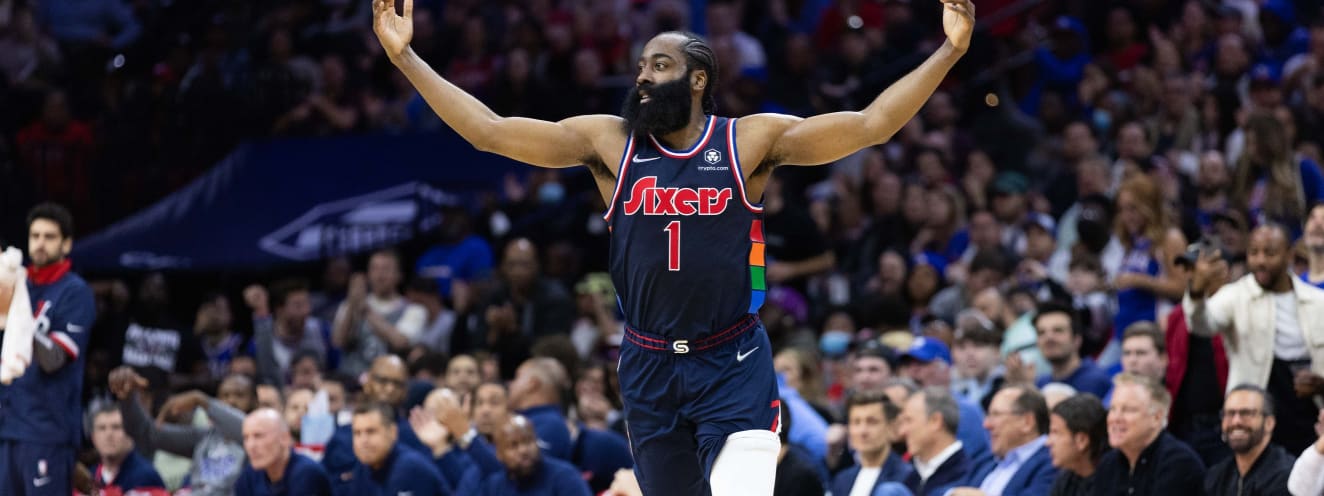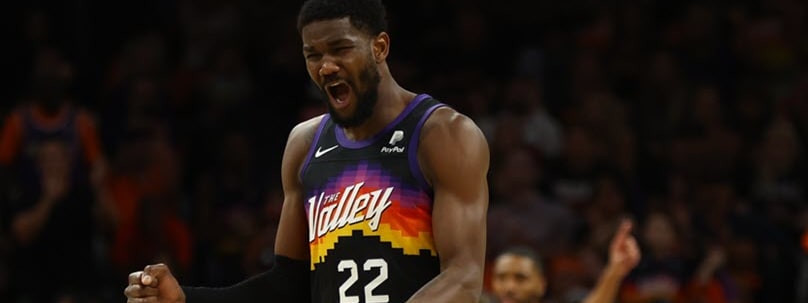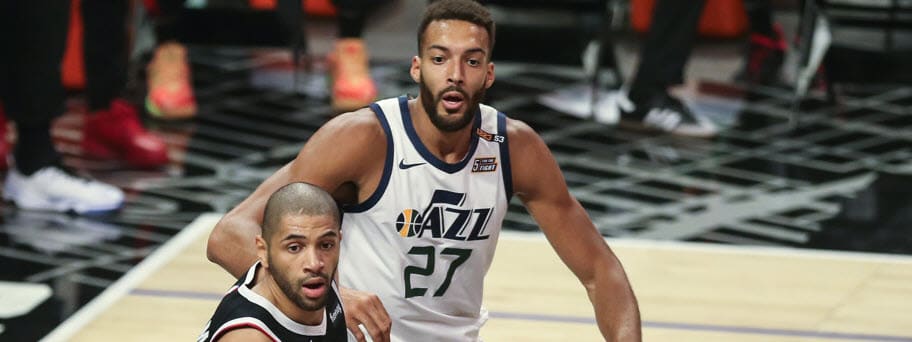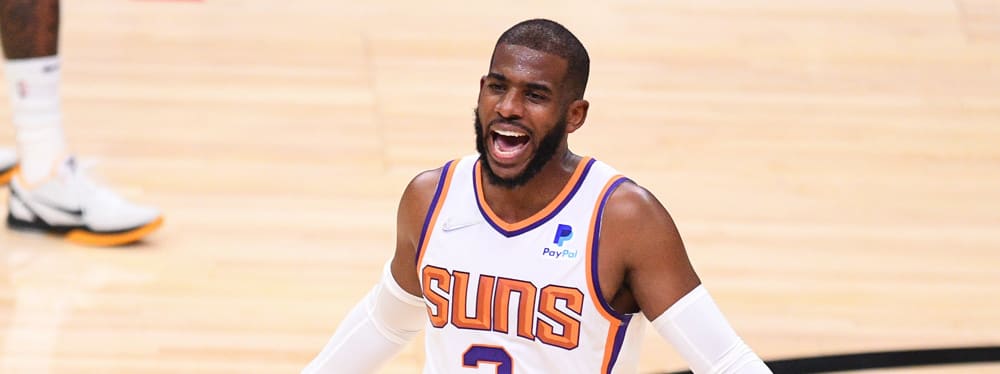Recent RotoWire Articles Featuring Hassan Whiteside
See More
Injuries, COVID-19 protocols and falling out of favor with coach Luke Walton limited Whiteside to just 36 games last season with the Kings. The big center played a backup role and averaged 8.1 points, 6.0 rebounds and 1.3 blocks in 15.2 minutes per game. Those numbers are gaudy given his workload, and there remains no question that Whiteside is one of the best per-minute fantasy producers in the NBA. However, his stats haven't had a history of leading to wins or great team chemistry, hence his frequent team changes. That's the case again for this upcoming season, as Whiteside will change teams and serve as Utah's backup center to Rudy Gobert. The Jazz don't really have another option for reserve center minutes besides Eric Paschall, who is much more of a power forward, and Udoka Azubuike, who showed flashes in Summer League but is still a project. With that being the case, Whiteside should again be in line for roughly 15 minutes per night. He can still crack the top 200 in that limited run, so he has to at least be considered in deep leagues. Plus, if Gobert suffers any sort of significant injury, Whiteside could put up great stats. In a best ball format, it makes sense to draft Whiteside late if you snag Gobert early.
After losing his starting job late in the year to Bam Adebayo in 2018-19 while on the Heat, Whiteside had a bounceback campaign with the Trail Blazers last season. Filling in for the injured Jusuf Nurkic, Whiteside averaged 15.5 points, 13.5 rebounds, a league-high 2.9 blocks and 1.2 assists in 30.0 minutes. He also shot 62.1 percent from the field. That was good for the 15th-ranked fantasy season in 2019-20 on a per-game basis in eight-category leagues. However, Portland and Whiteside have parted ways, as the center has signed a one-year deal with the Kings. He'll presumably be battling Richaun Holmes in training camp for the starting job, but the situation ultimately hurts both their fantasy values. Still, even if Whiteside can see minutes in the low-to-mid-20s, he'll likely be relevant in fantasy. We just can't bank on him reaching the type of value he did last season.
The 2018-19 campaign wasn't kind to Whiteside, who once again saw his fantasy production dip despite playing in 72 contests. Most notably, he finished the year averaging 12.3 points, which marked his lowest scoring total since the 2014-15 season. On the bright side, he remained a monster on the defensive end of the court, hauling down 11.3 boards while swatting 1.9 blocks on the year. The 7-foot center was shipped off to Portland in July, giving the big man a much-needed change of scenery. Whiteside saw his playing time drop to 23.3 minutes per game a season ago in his fifth year with the Heat, which is something fantasy owners may not need to worry about as a member of the Trail Blazers. He figures to immediately slot in as the starting center, and he shouldn't have too much competition for playing time while Jusuf Nurkic recovers from a devastating leg injury for much of the upcoming season. While Whiteside won't be at the top of many draft boards, he could be an intriguing pick in a brand new environment, and he'll have a chance to take some of the focus off Damian Lillard and C.J. McCollum.
The 2015-16 block champion and 2016-17 rebounding champion, Whiteside saw his role reduced during 2017-18, garnering his fewest minutes per game (25.3) since his first year in Miami. Though he was still productive -- 14.0 points, 11.4 rebounds, 1.7 blocks on 54.0 percent shooting -- it became clear that he wasn't always going to be a staple for coach Erik Spoelstra at the end of games and against small-ball teams. Whiteside also played just 54 games while dealing with knee and hip injuries. Even with that being the case, his 11 games of 30-plus minutes represent a drastic change from 2016-17, when he played 59 such games. That trend, coupled with the swirling rumors that the Heat are looking to trade Whiteside, make him a relatively risky pick for Fantasy. On a positive note, the 29-year-old improved his free-throw stroke to 70.3 percent after three consecutive years at 65.0 or under.
Whiteside, just a year after leading the NBA in blocks per game (3.7) during the 2015-16 campaign, led the league in rebounds per game (14.1) last season. In addition to his staggering rebounding numbers, Whiteside also averaged 17.0 points (on 55.7 percent from the field) and 2.1 blocks per game during the 2016-17 season, which made him one of the premier Fantasy options at center. While his blocks per game did take a hit last season, it was in large part due to opponents challenging him less at the rim rather than him taking a step backward skill-wise, as evidenced by the fact that he still ranked fourth in the league in defensive rating. The Heat’s roster will be almost entirely the same next season, except for the addition of Kelly Olynyk. Though Olynyk spent 91 percent of his time at center last season, the Heat’s front office and coaching staff seems to believe he can play next to Whiteside at power forward for significant chunks of games. If that’s so, Whiteside’s workload and production should be minimally affected, if at all.
Whiteside finished his transformation from pauper to prince in 2015-16, coming through with a spectacular first full season in the NBA to earn a four-year, $98 million contract with the Heat in July. It concluded a stunning rise for Whiteside, a former second-round pick who the Heat plucked from the D-League in December 2014 and watched him blossom into the NBA’s top shot blocker. While maturity issues had delayed Whiteside in getting established in the NBA and were somewhat evident during his rise to prominence in 2014-15, the center was more of a model citizen last season, dropping his technical fouls from seven to four and responding well to coach Erik Spoelstra’s decision to bring him off the bench when he returned from an oblique injury in early February. Whiteside would go on to average 14.2 points (on 60.6%), 11.8 rebounds and 3.7 blocks in 29.1 minutes per game over 73 appearances, accruing three ultra-rare point/rebound/block triple-doubles along the way. Most impressively, Whiteside achieved one of his primary goals heading into the season and improved his free-throw shooting, bringing his mark up from a woeful 50 percent in 2014-15 to a much more palatable 65 percent. There might not be much room for Whiteside to bump up his scoring given that his offensive repertoire is largely limited to putting back offensive rebounds and finishing off lobs, but the fact that he’s no longer a liability at the foul line should help his case for staying on the court during crunch time. That improvement coupled with his unparalleled rejection totals make Whiteside a worthy investment in the early rounds of fantasy drafts.
Whiteside is coming off an explosive breakout 2014-15 campaign with the Heat where he posted averages of 11.8 points, 10.0 rebounds, and 2.6 blocks in just 24 minutes while shooting 63 percent over the course of 48 games with the team. Whiteside will now enter the final year of his current deal, where a very productive season could lead to a very large new contract. Talent-wise, the Marshall alum has it all, as he can finish strong inside, rebound the ball at will, and serve as one of the league's very best shot blockers. However, Whiteside has a history of acting out and having attitude problems on the floor. Last season, the 7-footer was suspended for one game following a cheap shot to the back of Celtic's forward Kelly Olynyk's head, and the move is a cause for concern regarding Whiteside's future. Regardless, Whiteside will use this season to prove both his talent and maturity as the full-time starting center for Miami. He is a walking double-double who is only getting better, but it is his defensive presence that really makes him shine, as there is a good chance Whiteside can challenge to lead the league in blocks this coming season.
Signed non-guaranteed training camp deal with Grizzlies in Sept. 2014. Waived by the Grizzlies in Oct. 2014.
Whiteside missed the entire 2010-2011 campaign due to a major knee injury. And while he enters this season healthy, he doesn’t figure to see very many minutes in the Kings’ crowded frontcourt.
The back of Whiteside’s jersey should read “PROJECT.” While once hyped as a top-10 pick, Whiteside fell all the way to the second round when teams realized that a) his production was only okay in a terrible conference and b) he had only played one season of college despite being 21 years old. Whiteside has potential, but he won’t realize it for at least two or three years.













